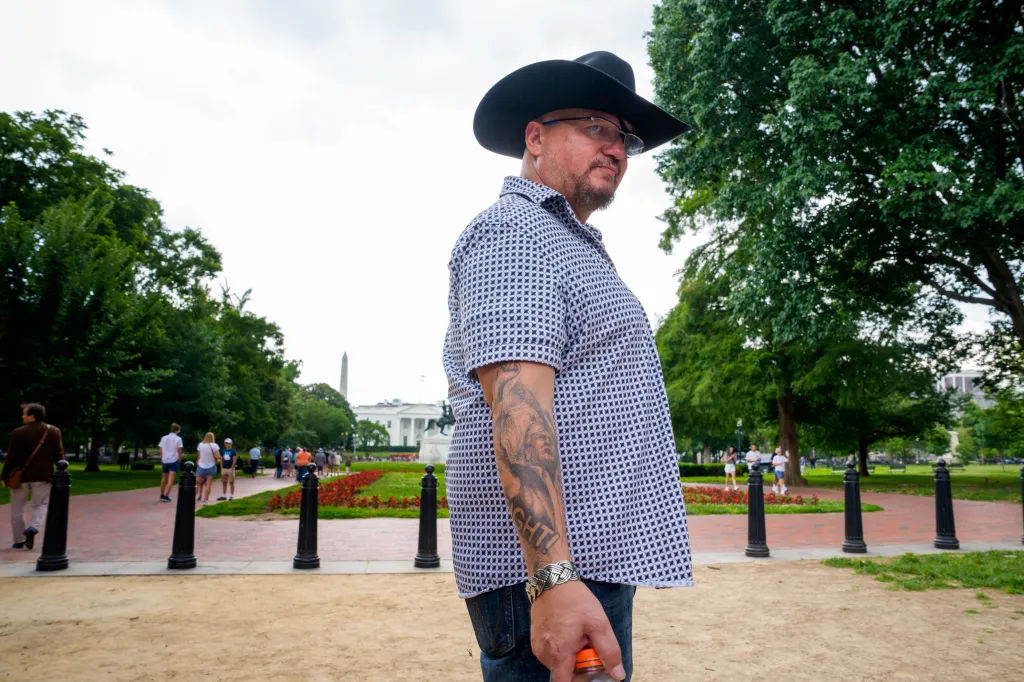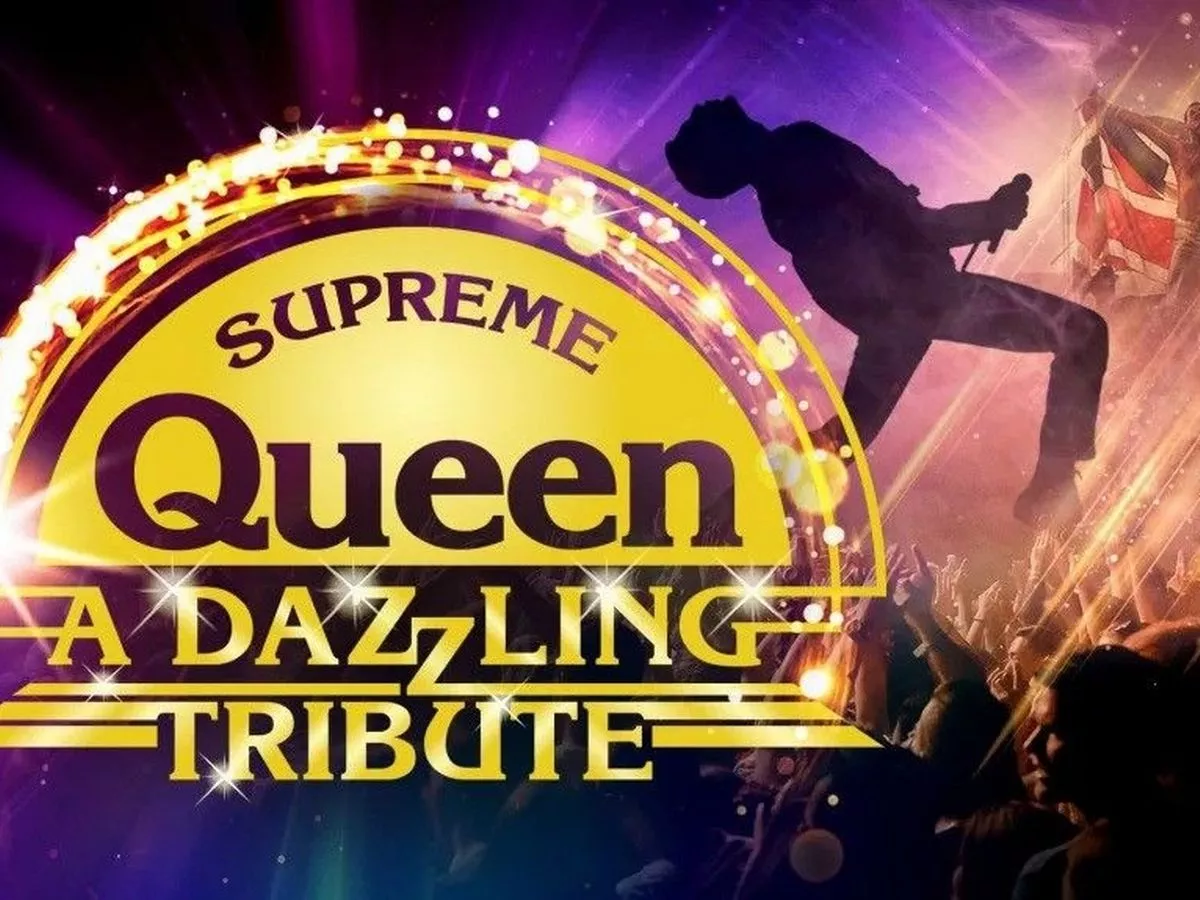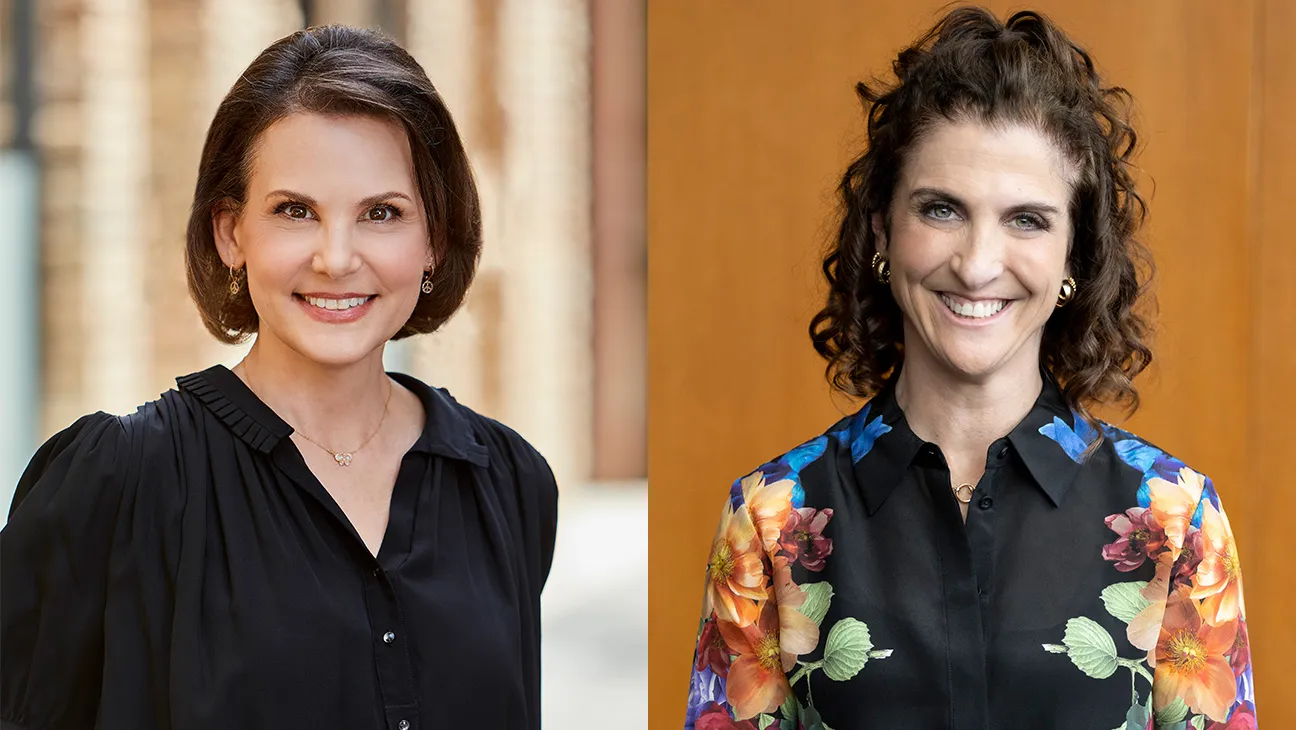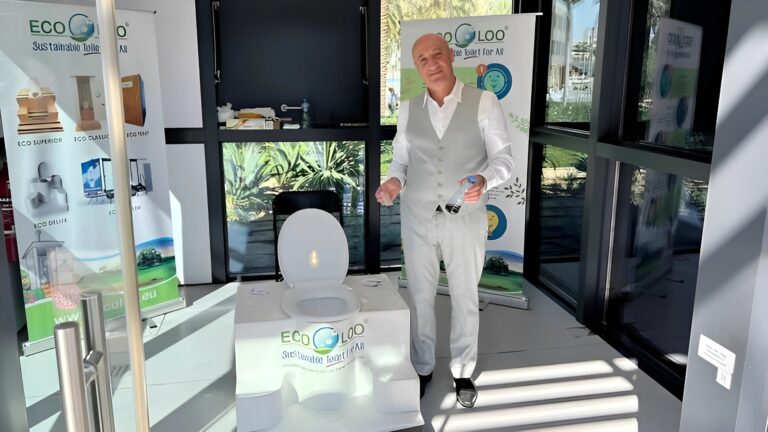
Amid outrage following the assassination of Chicago-area native and conservative activist Charlie Kirk and fears of escalating violence across the political spectrum, a far west suburban group led by an Illinois Republican Party official is pressing ahead with an event featuring the founder of a right-wing extremist group who played a key role in the U.S. Capitol insurrection.
Even before Kirk was killed Sept. 10, Oath Keepers founder Stewart Rhodes’ scheduled appearance on Tuesday in suburban Geneva was moved to a private location after local progressive groups protested giving a platform to a man whose 18-year prison sentence for seditious conspiracy was commuted when President Donald Trump on the first day of his second term issued a sweeping clemency order for the nearly 1,600 people charged in the Jan. 6, 2021, riot.
Rhodes’ event is part of a series of talks, titled “Pints & Politics,” sponsored by the Geneva-based Three Headed Eagle Alliance, a group headed by a member of the Illinois GOP State Central Committee.
In heavily blue Illinois, where every statewide officeholder is a Democrat, the state’s Republican Party has continued to shift to the right, and segments of the party leadership have highlighted its more conservative voices. Others who have participated in the “Pints & Politics” series include state lawmakers from the conservative Illinois Freedom Caucus and Ted Dabrowski, the conservative activist and former president of research outfit Wirepoints who is running in the GOP primary for governor.
The group’s decision to give a venue to Rhodes, one of the most prominent Jan. 6 conspirators, also reflects the broader demographics of those prosecuted for their role in the assault on the Capitol, most of whom were living in suburbs near major cities, said Robert Pape of the University of Chicago, an expert on political violence.
In a comprehensive study of those prosecuted in connection with the insurrection, Pape’s Chicago Project on Security and Threats found that the vast majority — 90% — weren’t affiliated with extremist groups like the Oath Keepers or Proud Boys. Meanwhile, 85% came from urban and suburban counties, according to an April report titled “Trump Suburban Rage: The Conclusive Findings on Who Stormed the U.S. Capitol and Why It Matters.” Among the 58 Illinoisans who were charged, 35 came from Cook County and the collar counties.
Contrary to the popular image of “white rural rage,” Pape said in a recent interview, the insurrectionists largely are “like the people next door in the nice suburb.”
In addition to his involvement in the attack on the U.S. Capitol, Rhodes was a founder of Oath Keepers, a group that’s been widely regarded as an extremist organization.
But in promoting the event, the Three Headed Eagle Alliance’s chair, Debbie Kanarowski, wrote that Rhodes “became a political prisoner because he was well known and the left did not like what he stood for.”
“As a reminder, Stewart did not go into the Capitol (on Jan. 6, 2021), he spoke and yet received an 18 year sentence in jail,” Kanarowski, who is the suburban 8th Congressional District’s representative on the Illinois GOP State Central Committee, wrote under the heading “CANCEL CULTURE ARRIVES IN OUR BACKYARD.”
Rhodes’ talk was originally scheduled for Tuesday at Eagle Brook Country Club in Geneva but was moved to a spot that the Three Headed Eagle Alliance would divulge only to those who register and pay a $15 door fee.
While Rhodes indeed did not enter the U.S. Capitol with the mob of Trump supporters who sought to disrupt the certification of Joe Biden’s 2020 election victory, a federal jury convicted the Army veteran and Yale Law School graduate of seditious conspiracy and other crimes for his role in fomenting and preparing for the violence in Washington.
Among the charges Rhodes was found guilty of was orchestrating a weekslong plot that culminated in his followers attacking the U.S. Capitol. The federal judge who handed down Rhodes’ sentence, an appointee of President Barack Obama, told the Oath Keepers leader he was “an ongoing threat and a peril to this country, to the republic and the very fabric of our democracy.”
When Trump freed all those convicted in connection with the insurrection on his first day in office, Rhodes was among 14 individuals whose sentences were cut short but who did not receive a “complete and unconditional pardon” for their crimes.
Nevertheless, an online flyer for the Three Headed Eagle Alliance event says Rhodes is “widely viewed by his supporters as a political prisoner due to his outspoken belief that the 2020 election was fraudulent” — a claim that has been widely disproved.
Kanarowski declined an interview request with the Tribune, but confirmed in an email that the event was proceeding. Despite growing concerns about political violence in the wake of Kirk’s killing, Kanarowski wrote that “no new considerations” were being put into place for the Rhodes event.
“Our organization has a mission to ‘Educate Voters and Challenge Leaders,’” Kanarowski wrote. “Sadly, most citizens do not get the correct information from the media and the previous administration. Our speakers are selected to educate those in attendance.”
Kanarowski did not respond to follow-up questions about what she hoped attendees would learn during a time of rising political violence from a figure who has supported the use of violent means toward political ends. After Jan. 6, for example, Rhodes privately advocated for Trump to use paramilitary forces to remain in power, according to testimony at his trial.
Kanarowski also declined the Tribune’s request to cover the event “because we can not trust that it will be reported fairly.”
Founded in mid-2020, the Three Headed Eagle Alliance is registered with the IRS as a 501(c)(4) nonprofit “social welfare organization.” Under federal law, such groups, which also include Gov. JB Pritzker’s Think Big America organization, are prohibited from engaging primarily in political activities, but the restrictions are rarely enforced. Since its inception, the group hasn’t raised more than $50,000 in any year, federal tax records show.
When the group began advertising Rhodes’ appearance, word spread quickly among progressive groups in Kane County.
Geneva resident Paula Merrington of the group Fox Valley Activists said she didn’t think it was “appropriate to welcome somebody such as Stewart Rhodes, a very undesirable human being, to come into our community and speak.”
Her group and grassroots organization We Can Lead Change — Fox Valley “joined forces” for a petition and a phone and email campaign to ask Eagle Brook Country Club and its owner, Dallas-based Arcis Golf, “to reconsider hosting an insurrectionist in Geneva,” Merrington said. Opponents also picketed outside the club earlier this month.
Arcis Golf did not respond to a request for comment.
The conflict over Rhodes’ scheduled appearance comes at a time of heightened tension nationally over Kirk’s death and across the Chicago region as Trump has continued wavering in his threats to send military troops to the city but has stepped up immigration enforcement, particularly in the outer suburbs.
Pritzker’s frequent jabs at the president and his early remarks placing Kirk’s shooting in the broader context of rising political violence, including the Jan. 6 insurrection, have drawn the ire of Illinois Republicans.
Pointing to an April speech to New Hampshire Democrats in which Pritzker said, “Republicans cannot know a moment of peace,” and the governor’s February State of the State address, in which he drew parallels between the second Trump administration and the rise of Nazism in 1930s Germany, members of the Illinois GOP have accused Pritzker of stoking political violence.
While Pritzker’s New Hampshire speech actually called on Democrats to deny Republicans “a moment of peace” by exercising their free speech and voting rights, such nuance is easily lost in the modern media environment, said Pape, the U. of C. political violence expert.
“We live in a world where all of that … carefully crafted context around those phrases can easily be cropped out by the media, and it’s not in his control,” Pape said.
When leaders of one party condemn members of the other, research shows “what that does is it produces fear and defiance,” Pape said. “In other words, it makes things worse. It stirs the pot.”
Trump’s comment to reporters on the South Lawn of the White House last week that he was going to deploy the National Guard “against Pritzker” is also “really quite concerning,” Pape said.
After saying the CEO of Union Pacific Railroad encouraged him to “save Chicago,” Trump told the press: “I’m going to go to Chicago early against Pritzker. Pritzker is nothing. If Pritzker was smart, he’d say, ‘Please come in.’”
While it was unclear whether Trump actually meant he would deploy troops “against” Pritzker’s wishes, “however he means that, that will be read as against Pritzker politically, and that’s different than sending in the guard,” Pape said, something Pape also argued against in a recent New York Times op-ed.
With rising political violence on the right and left, “we are in a watershed moment that I call the era of violent populism,” Pape said.
He pointed to his center’s May survey, which showed the highest levels of support for political violence since the poll’s inception in summer 2021, with nearly 40% of Democrats agreeing that “the use of force is justified to remove Donald Trump from the presidency” and nearly 25% of Republicans agreeing that “Donald Trump is justified using the U.S. military to stop protests against the Trump agenda.”
“We just need to understand that … the heated rhetoric on top of a heated moment is going to be nudging things in a heated direction,” Pape said.



